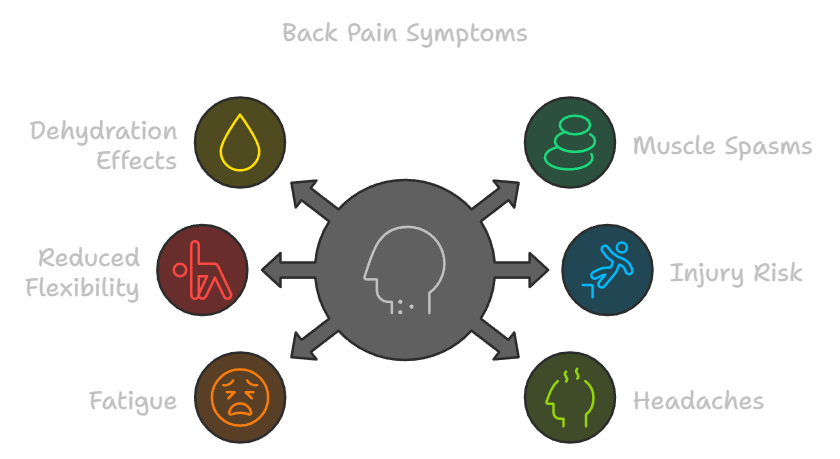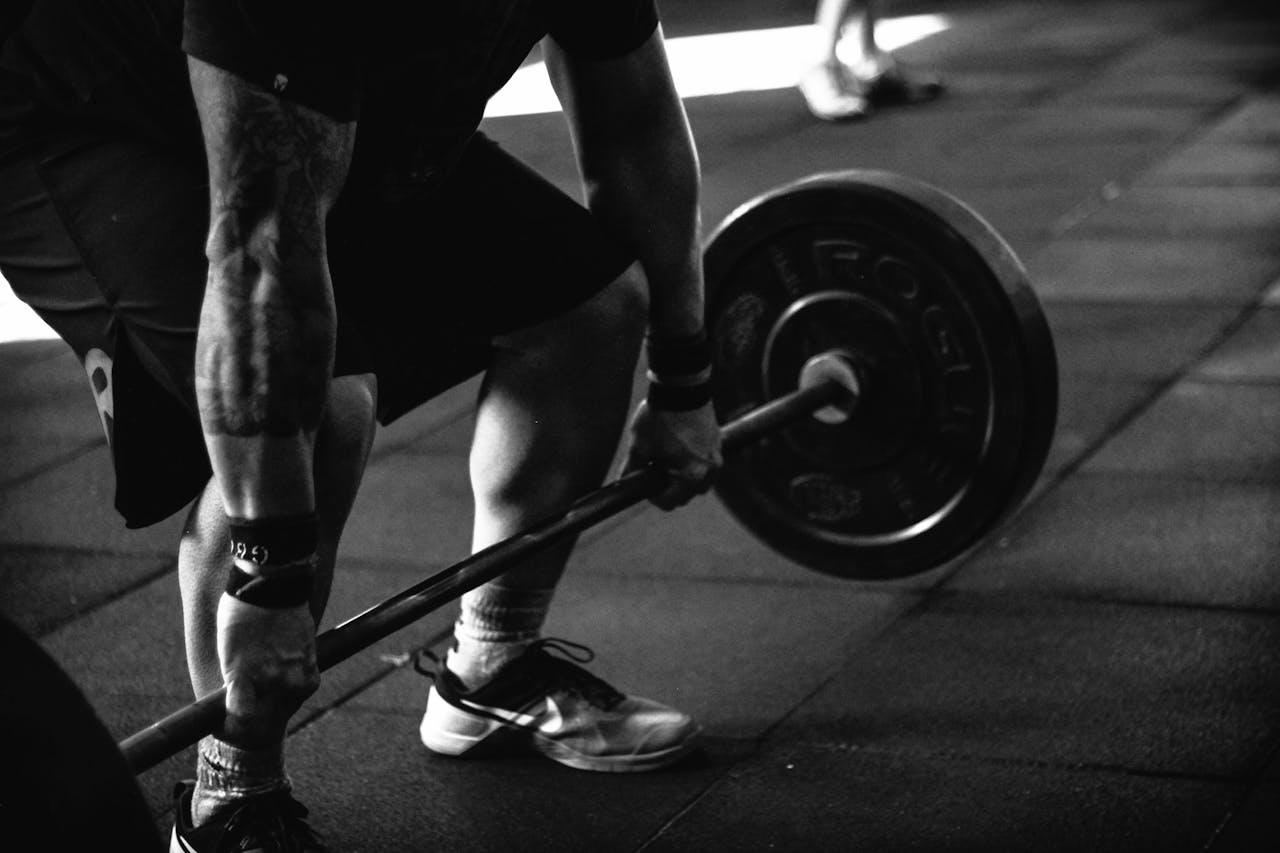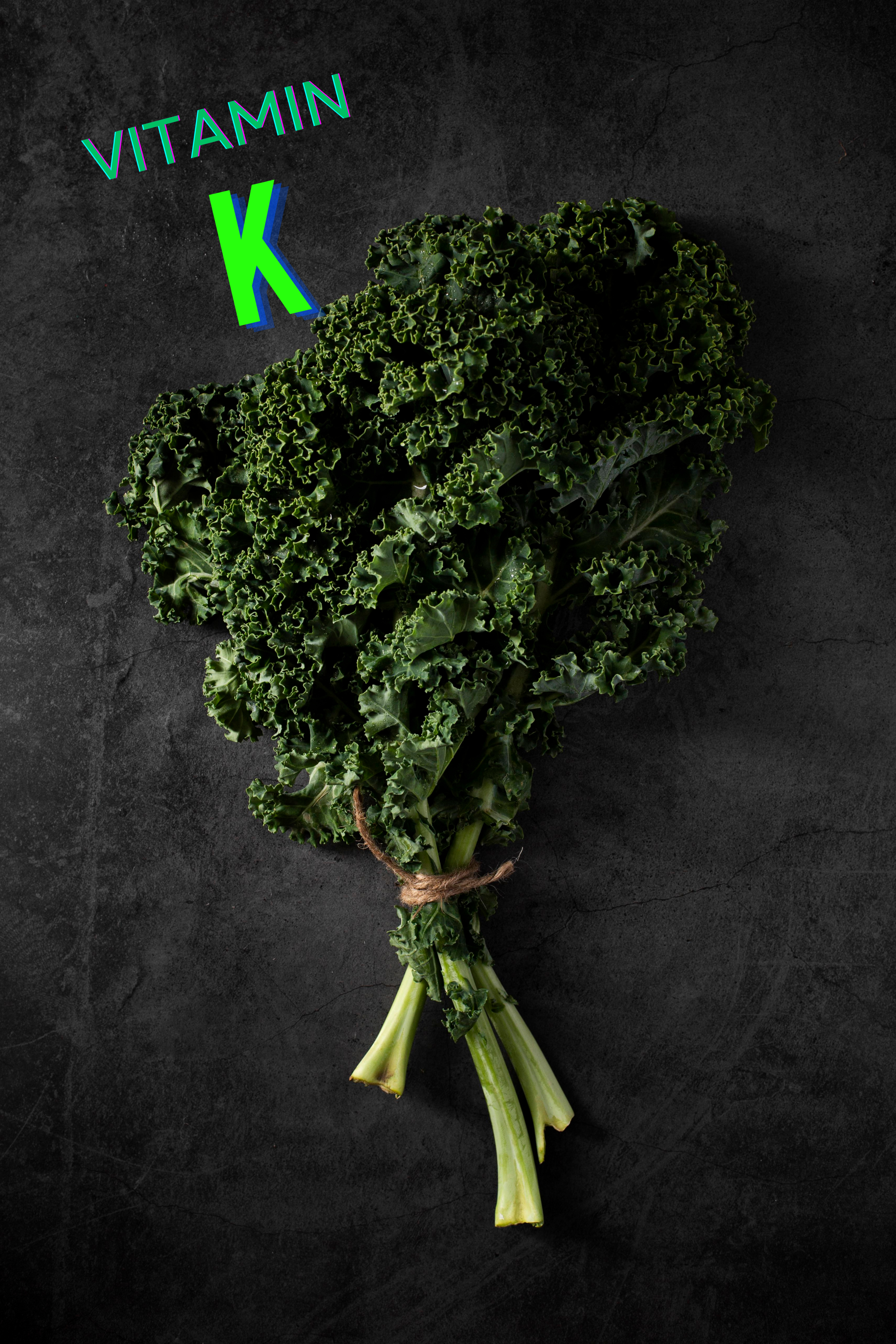Can Dehydration Cause Lower Back Pain? Uncover the Truth!
Ever heard the saying, “Drink plenty of water or your back might start talking back”? Okay, maybe I made that up, but there’s some truth to it! If you’ve ever wondered whether dehydration causes lower back pain, you’re in the right place. Let’s dive into this watery issue, where we’ll discuss how neglecting your hydration routine might just give your spinal discs something to complain about.

- Can Dehydration Cause Lower Back Pain? Uncover the Truth!
- 1. Why Can Dehydration Causes Lower Back Pain: Spinal Discs Are Like Jelly Donuts (And Why They Need Water)
- 2. Signs of Dehydration: Is Your Back Trying to Tell You Something?
- 3. Spinal Discs and Dehydration: A Comedy of Errors
- 4. How to Drink Plenty and Keep Your Spine Happy
- Final Thoughts: Water You Waiting For?
- FAQs: Dehydration and Lower Back Pain
1. Why Can Dehydration Causes Lower Back Pain: Spinal Discs Are Like Jelly Donuts (And Why They Need Water)
The Role of Spinal Discs in Spinal Protection
Imagine your spinal discs as jelly-filled donuts, but instead of delicious jam, they’re packed with a jelly-like substance that keeps your vertebrae cushioned. These intervertebral discs are essential for spinal protection and shock absorption. When you move, your spine discs absorb the impact, saving your vertebrae from knocking against each other like a couple of grumpy neighbors. But what happens if these jelly-like discs dry out?
How Dehydration Affects Your Spinal Discs
That’s where dehydration comes in. The human body is about 60% water, and your spinal discs are like little water balloons inside your back. When you’re dehydrated, these vertebrae cushions lose their plumpness, which means they can’t do their job properly. The result? Lumbar pain, spinal discomfort, and a few choice words you might mutter under your breath as you reach for your water bottle.
2. Signs of Dehydration: Is Your Back Trying to Tell You Something?
1. Common Dehydration Symptoms That Affect the Back
Dehydration symptoms can sneak up on you like a ninja, but there are warning signs to watch out for. Besides the obvious ones like thirst, dry mouth, and feeling like a raisin, dehydration can also manifest as back pain. Yes, that nagging lower back pain might just be your body’s way of waving a tiny white flag, signaling a lack of fluids. When you don’t consume enough water, your spinal discs can’t maintain their plump, shock-absorbing form, leading to spine pain that might have you cursing the chair you’ve been sitting in all day.
2. How to Recognize Dehydration Indicators
But how do you know if dehydration is the culprit behind your backache? Look out for these dehydration indicators:
1. Increased Back Pain
- Symptom: Existing back pain may intensify or new pain may develop, particularly in the lower back.
- Why it happens: Dehydrated intervertebral discs provide less cushioning, leading to increased pressure on the spine and potentially causing or exacerbating pain.
2. Stiffness and Reduced Flexibility
- Symptom: The back may feel stiffer than usual, with a noticeable decrease in range of motion.
- Why it happens: Lack of hydration can cause muscles and connective tissues to become less pliable, leading to reduced flexibility and increased stiffness.
3. Muscle Spasms or Cramps
- Symptom: Sudden, involuntary contractions of back muscles, ranging from mild twitches to severe spasms.
- Why it happens: Dehydration can disrupt the balance of electrolytes, particularly sodium and potassium, which are crucial for proper muscle function.
4. Increased Risk of Injury
- Symptom: Higher susceptibility to strains, sprains, or other back injuries during physical activity.
- Why it happens: Dehydrated muscles and connective tissues are less elastic and more prone to injury when stressed.
5. Fatigue and Weakness
- Symptom: General feeling of tiredness, particularly noticeable in the back muscles.
- Why it happens: Dehydration can lead to reduced blood volume, meaning less oxygen and nutrients are delivered to back muscles, leading to fatigue.
6. Headaches Originating from the Neck
- Symptom: Headaches that seem to start at the base of the skull or in the neck.
- Why it happens: Dehydration can cause the brain to temporarily contract, pulling away from the skull and putting pressure on pain-sensitive nerves, which can manifest as pain in the neck and head.
7. Slower Recovery from Back Exercises
- Symptom: Prolonged soreness or stiffness after workouts involving the back.
- Why it happens: Proper hydration is crucial for removing waste products from muscles and delivering nutrients for repair. Dehydration can slow this process.
8. Increased Sensitivity to Pain
- Symptom: Normal movements or positions that usually don’t cause discomfort may become painful.
- Why it happens: Dehydration can lower the threshold for pain perception in the body, including in the back.

Related: Lower Back Pain Solution
3. Spinal Discs and Dehydration: A Comedy of Errors
The Domino Effect of Dehydration on Your Spine
Picture this: Your spinal discs are like a group of coworkers at the office. When they’re hydrated, they’re happy, working well together, and keeping things running smoothly. But when dehydration sets in, it’s like someone took away the office coffee machine—morale plummets, and suddenly nobody’s getting along. The vertebrae cushions can’t cushion as they should, leading to lumbar pain that no amount of stretching seems to fix.
The Consequences of Poor Shock Absorption
The connection between dehydration and lower back pain is as real as that 3 p.m. urge to take a nap. When your spine discs are dehydrated, they lose their ability to act as effective shock absorbers. This lack of shock absorption means more strain on your spine, leading to painful swelling and discomfort. It’s like driving a car with flat tires—bumpy, uncomfortable, and not ideal for long distances.
4. How to Drink Plenty and Keep Your Spine Happy
Practical Tips for Staying Hydrated
So, how do you keep your spinal discs hydrated and avoid that nagging back pain? It’s simple: drink plenty of water! Make it a habit to consume water regularly throughout the day. If you’re not a fan of plain H2O, mix it up with some hydrating fruits, herbal teas, or even a splash of lemon juice. The key is to make sure your hydration routine is on point, so your spine doesn’t have to work overtime.
The Importance of a Consistent Hydration Routine
Maintaining proper hydration is a cornerstone of good health, yet it’s often overlooked in our daily routines. Establishing a consistent hydration routine is not just about quenching thirst; it’s a fundamental aspect of overall wellness that impacts nearly every system in our bodies. Let’s dive into why staying hydrated should be a top priority and how to develop a routine that keeps you at your best.
1. Cellular Function
Water is essential for cellular health. It helps transport nutrients to cells and removes waste products. Proper hydration ensures that your body’s trillions of cells can function optimally.
2. Temperature Regulation
Your body uses water to regulate its temperature through sweating and respiration. Staying hydrated helps your body maintain a stable core temperature, which is crucial for overall health and performance.
3. Cognitive Function
Even mild dehydration can impact cognitive performance. Studies have shown that it can affect mood, memory, and attention span. Proper hydration keeps your brain functioning at its best.
4. Physical Performance
Whether you’re an athlete or just going about your daily activities, hydration plays a key role in physical performance. It helps maintain blood volume, regulate heart rate, and prevent fatigue.
5. Digestive Health
Water is crucial for digestive processes. It helps break down food, prevents constipation, and aids in nutrient absorption. A well-hydrated digestive system is more efficient and less prone to issues.
6. Skin Health
Proper hydration contributes to skin elasticity and appearance. While it’s not a magical cure for wrinkles, staying hydrated can help your skin look its best.
7. Kidney Function
Your kidneys use water to filter waste from your blood and excrete it in urine. Consistent hydration helps prevent kidney stones and urinary tract infections.
Final Thoughts: Water You Waiting For?
Don’t let dehydration sneak up on you and ruin your day with back pain. Keep your spinal discs happy by staying hydrated, and you’ll avoid the unpleasant side effects of dehydration. Remember, your human body is a finely tuned biological organism that needs plenty of water to keep everything running smoothly. So, the next time your lower back starts acting up, ask yourself—have I been drinking enough water? Your spine might just thank you for it!
FAQs: Dehydration and Lower Back Pain
Can Dehydration Really Cause Lower Back Pain?
Yes! When your spinal discs lose water, they can’t cushion your vertebrae properly, leading to back pain.
How Much Water Should I Drink to Prevent Dehydration Effects on My Back?
Aim for at least 8 glasses a day, but if you’re active or live in a hot climate, you may need more. Listen to your body—if you’re thirsty, drink up!
Are There Any Quick Fixes for Back Pain Caused by Dehydration?
The best quick fix is to rehydrate. Drinking water can help alleviate discomfort, but it’s also important to rest, stretch, and avoid activities that strain your back.
What Other Signs of Dehydration Should I Watch Out For?
Besides back pain, look for dry skin, dark urine, fatigue, and dizziness as signs that your body needs more water.
Can Drinking Water Help With Pain Relief?
Absolutely! Staying hydrated supports your body’s natural pain management processes and helps keep your spinal discs healthy and functional.




